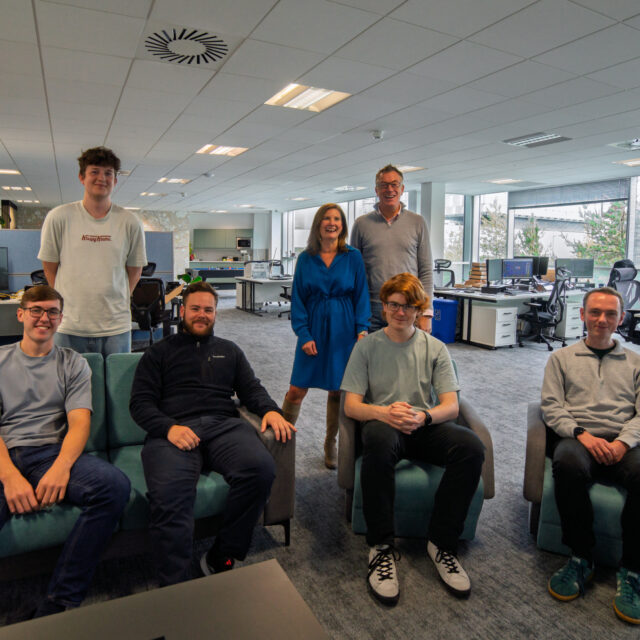One of the cruellest and most devastating diseases – Huntington’s – has been successfully treated for the first time, say doctors, which is fantastic news for Sciontec customer the Huntington’s Disease Association.
A recently published BBC News article revealed how one of the cruellest and most devastating diseases – Huntington’s – has been successfully treated for the first time.
The disease runs through families, relentlessly kills brain cells and resembles a combination of dementia, Parkinson’s and motor neurone disease.
An emotional research team became tearful as they described how data shows the disease was slowed by 75% in patients. The new treatment is a type of gene therapy given during 12 to 18 hours of delicate brain surgery.
The first symptoms of Huntington’s disease tend to appear in your 30s or 40s and is normally fatal within two decades – opening the possibility that earlier treatment could prevent symptoms from ever emerging.
Cath Stanley BEM, Chief Executive of the Huntington’s Disease Association, based within Liverpool Science Park said:
“This is a significant breakthrough, and I am sure it will bring hope to anyone affected by Huntington’s disease. This trial shows an astonishing 75% slowing of progression in the disease. That is remarkable and will bring much needed optimism to the Huntington’s disease community.”
Professor Ed Wild, added:
“This result is the good news we’ve been working and waiting for, not just a treatment that slows progression of this terrible disease, but one that does so with truly stunning effectiveness.
It is nothing less than the dawn of a new age for families impacted by Huntington’s disease. We must now work diligently to turn this breakthrough into something that benefits everyone who needs it.”
AMT-130 is an experimental gene therapy developed by pharmaceutical drug company UniQure to slow the progression of Huntington’s disease. Gene therapy aims to fix or replace genes that don’t work properly.
AMT130 is administered as a single dose via injection directly into the brain, in a neurosurgical operation lasting over 12 hours. Patients who have been treated also had biomarker changes (a measurable indicator that evaluates the effectiveness of treatments) suggesting that the effect of the drug comes from its ability to rescue neurons (nerve cells). This means the results show that the drug is helping to protect and rescue brain cells, which is why it works.
The trial is now finished.
UniQure’s treatment is going for approval in the USA next year, after that it will go for approval in the EU and MHRA ( the UK drug approval body). The final stage will be with NICE who will decide on its suitability to be delivered through the NHS. Unfortunately, this process will take some time.
Shared on the Huntington’s Disease Association’s website, their response article states that ‘today we can be reassured that hope is on the horizon. We will share any updates with you as and when we receive it.’
‘We would like to thank everyone from the Huntington’s disease community who have taken part in not only this clinical trial but all clinical trials including Enroll-HD. Without you, our researchers and pharmaceutical companies would not be able to share this news with us today.
‘We also want to thank the incredible and passionate teams of researchers who work tirelessly on a wide range of clinical trials, all with the same goal, of finding a treatment to slow down or stop the progression of Huntington’s disease.’

